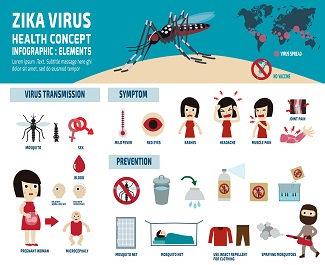Teething is one of the most painful experiences that a baby may have in his or her life although it is normal that some babies do not experience any pain at all. The pain is caused by the new teeth getting their way out through the gums.
Common signs that babies are experiencing teething include them chewing on their fingers much more often and excessive dribbling. Many babies will also have a raised body temperature and reddened cheeks and gums. These symptoms are normal; parents do not need to worry and stop their child from finger-bitting or fingers-chewing.
Care during the initial stage of teething
1. Ensure your child has clean hands
Parents should make sure that their little hands are clean and dry. Everything that the babies come into contact with should be dry and clean.
2. Good Oral Hygiene
Parents should ensure that their babies have good oral hygiene. If possible, try to feed your child with some warm water after breastfeeding or milk feeding.
3. Wipe your child's chin dry
The baby's chin should be dry to prevent any rashes from excessive dribbling.
4. Rub your baby's gums
Use a clean finger or moistened gauze pad to rub your baby's gums. The pressure can ease your baby's discomfort.
5. Use a chilled teething ring or toy
Parents can also buy teething rings or toys. These rings or toys give baby something to chew on and help to ease their discomfort. Some teething rings can be cooled first before it is used as this can provide additional soothing to baby's gum. Remember to clean the teething ring every time after use and do not put it in the freezer as it may then stick to your baby's gums or tongues.
6. Give your child hard foods
If the baby is able to eat solid foods, parents can give him or her a piece of chilled and peeled cucumber or carrot to gnaw on. However, it is important to pay close attention to the baby as some pieces that break off may pose a choking hazard.
Causes of delayed teeth formation
Some children may not get their teeth at the same time as their peers. A delay in teething is not something to be alarmed about, but you should take your child to a dentist if no teeth have emerged by the age of 12 months. Delayed formation of teeth can be caused by several factors.
Below are some possible causes of delayed formation of teeth:
1. Insufficient nutrition and health conditions
Children who are picky eaters may later teeth development than others. The lack of proper nutrition and health conditions such as cretinism and rickets could cause the late development of the teeth.
2. Insufficient nutrition during pregnancy
The late formation of teeth in babies may occur because the mothers did not take enough nutrition during their pregnancy and lactation period. This is because when a baby is still a fetus, his or her development of the teeth has already started. If the mother does not take enough nutrition during this period, it will affect the development of the baby's teeth.
3. Insufficient nutrition during the lactation period
In addition, if the mother does not take sufficient nutrition during the lactation period, it will affect the absorption of minerals such as calcium and phosphorus by the baby. As these minerals are important for the development of the teeth, if they are not supplied to the baby's body, the formation of the baby's teeth may be delayed.
4. Diseases
Some diseases are also causes of delayed formation of a baby's teeth. Anodonitia will cause the baby to have no tooth. A tumor in the baby's mouth may also cause the delayed teeth formation. Hormonal factors play a strong role in tooth development, so children with pituitary or thyroid problems frequently develop teeth late.
5. Genetic conditions
Some genetic conditions such as amelogenesis imperfecta and regional odontodysplasia can cause teeth to erupt late and be poorly formed.
Recommendations
Although the exact time when babies have the first tooth varies, parents should consult the dentist when the baby still does not have any teeth by the age of 12 months.
It is important to ensure that both the baby and the mother takes in enough nutrients in their daily lives by having a well-balanced diet. This is so as to achieve overall health and healthy teeth formation in the baby.



